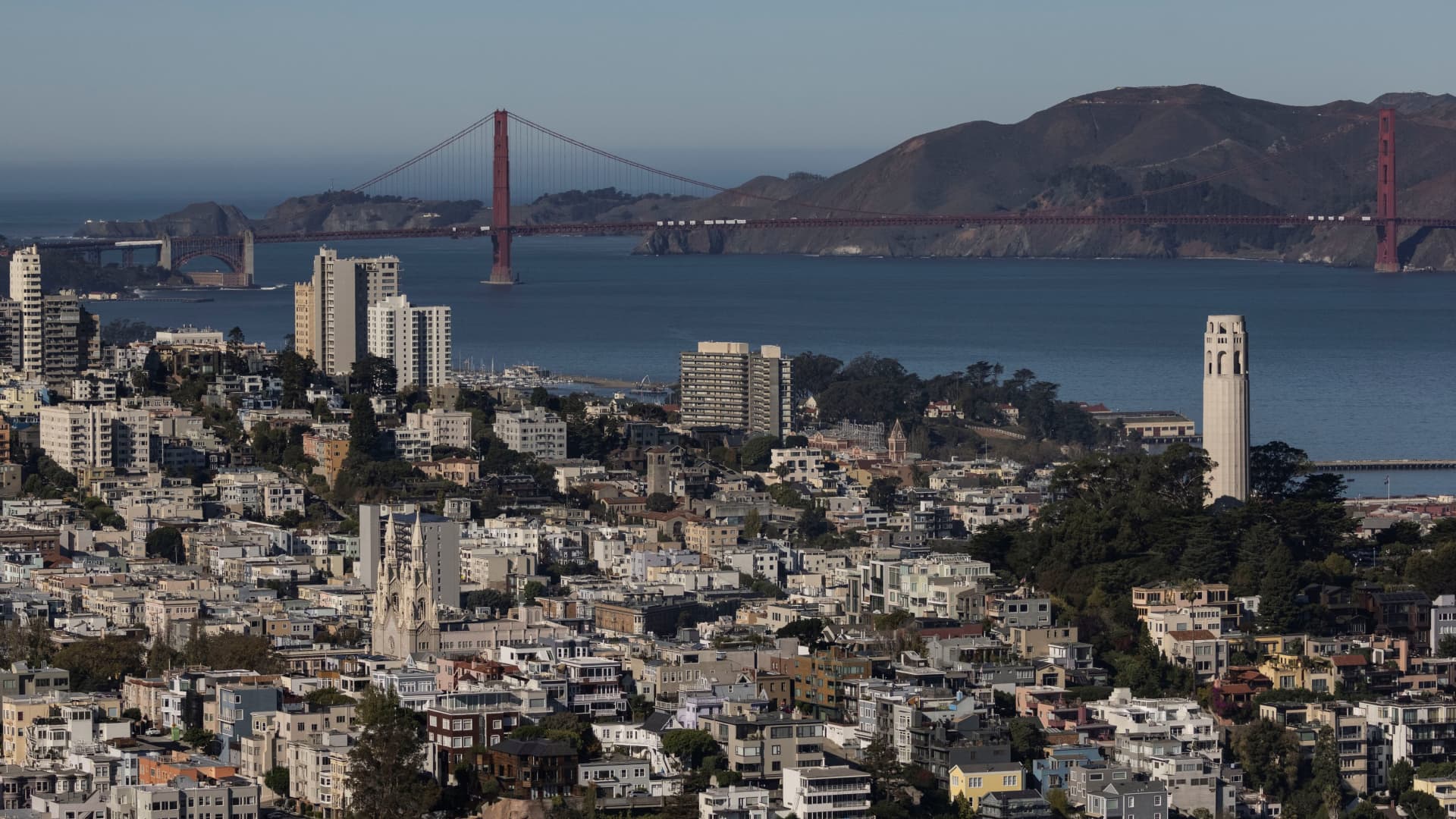
An aerial view of the city of San Francisco skyline and the Golden Gate Bridge in California, October 28, 2021.
Carlos Barria | Reuters
Jan Sramek, a former Goldman Sachs trader, has been quietly working to build an urban utopia in California nestled near San Francisco and Silicon Valley. But just a few years after the mysterious project got underway, it is facing increasing scrutiny from local officials and residents.
According to a report from The New York Times on Friday, Sramek is the brains behind a company called Flannery Associates, which has spent more than $800 million scooping up thousands of acres of farmland. According to the report, the firm wants to use the land to rethink government and how buildings are constructed, although there are few other details for the plan. A separate report from Bloomberg said the plans call for a “mega-city.”
The company has attracted some of the biggest investors in tech, including LinkedIn co-founder Reid Hoffman; Marc Andreessen, an investor at Andreessen Horowitz; and billionaire venture capitalist Michael Moritz, the report said.
It is not immediately clear how much these backers invested.
Until recently, Flannery Associates has been shrouded in mystery. Local residents were unnerved by the company as it bought up more and more land, according to the report. A Democratic representative in a neighboring region in California told the Times he had been trying to identify the company for years.
Flannery Associates only became known to the official after the company reached out to set up a meeting, which was its first attempt to speak with local representatives. But even as the company eases into the public eye, it faces an uphill battle as it contends with lawsuits from locals and thorny regulations such as California’s strict zoning laws.
As of now, it is unclear if the city will ever make it past the drawing board.





